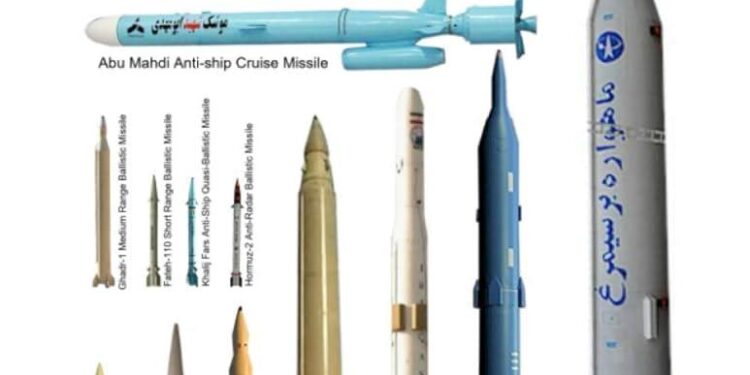Middle East Conflict Intensifies: Iranian Missile Attacks on Israel
In a significant escalation of hostilities in the Middle East, Iran has launched missile strikes targeting locations within Israel, triggering a forceful response from Israeli Prime Minister Benjamin Netanyahu. During a recent press briefing, Netanyahu issued a resolute warning to Tehran, emphasizing that additional military actions are forthcoming. These missile attacks have further heightened tensions between the two nations, highlighting the increasingly fragile and adversarial relationship that threatens regional peace. As both countries prepare for possible retaliatory measures, global observers remain vigilant about the risk of an expanded conflict with far-reaching consequences for Middle Eastern stability.
Understanding the Escalation of Iran-Israel Tensions
The missile barrage from Iran marks a pivotal moment in an already strained relationship with Israel. Israeli leadership has responded with firm rhetoric underscoring readiness for further military engagement should Iranian provocations persist. This development not only tests Israel’s air defense systems but also signals advancements in Iran’s ballistic missile capabilities—an alarming trend noted by defense analysts worldwide.
Several critical elements contribute to this rising tension:
- Expansion of Military Arsenal: Iran’s ongoing enhancement of its missile technology directly challenges Israeli security frameworks.
- Proxy Warfare Dynamics: Conflicts involving Iranian-backed groups in Syria and Lebanon exacerbate risks of direct clashes.
- Global Diplomatic Stakes: The situation heavily influences U.S., European Union, and broader international foreign policy decisions concerning Middle Eastern affairs.
| Nation | Missile Range (km) | Total Active Military Personnel | Annual Defense Expenditure (Billion USD) |
|---|---|---|---|
| Iran | > 2,000 km | Approx. 523,000 | $20B (2024 estimate) |
| Israel | > 1,500 km | Around 170,000 active personnel plus reserves exceeding 450,000 | $24B (2024 estimate) |
Netanyahu’s Warning and Its Broader Geopolitical Impact
The stern declarations from Prime Minister Netanyahu signal potential intensification in military operations against Iranian targets if provocations continue unabated. Such rhetoric raises alarms about prolonged conflict scenarios that could destabilize not only bilateral relations but also wider regional alliances across the Middle East.
This volatile environment risks triggering cascading effects among neighboring states as they navigate complex political alignments—potentially igniting an arms buildup as countries seek to safeguard their interests amid growing uncertainty.
- Possibility of Regional War: Direct confrontations may spiral into broader warfare involving multiple actors across national borders.
- Energies Market Vulnerability: Heightened instability threatens disruption to oil production and supply chains critical to global markets.
- Diplomatic Strains Among Allies: Countries allied with either side face difficult choices that could fracture longstanding partnerships or provoke new diplomatic rifts.
Global Strategies to De-escalate Middle East Tensions and Promote Stability in 2024+
The international community must pursue comprehensive strategies aimed at reducing hostilities while fostering dialogue between conflicting parties. Key approaches include:
- Diplomatic Reengagement Initiatives:A concerted effort is needed to reopen communication channels among Iran, Israel, and influential global stakeholders focusing on confidence-building measures and mutual recognition protocols designed to curb aggression.
- Tightening Sanctions Coupled With Vigilant Oversight:
Cohesive enforcement mechanisms targeting entities involved in weapons development can help limit further militarization while monitoring compliance through international bodies.- Regional Security Coalitions: Encouraging cooperation among neighboring states can create unified deterrence frameworks discouraging unilateral hostile acts while promoting peaceful dispute resolution methods.
Intervention Type Description Humanitarian Assistance Expand aid programs addressing civilian needs affected by ongoing conflicts. Dialogue Facilitation Workshops Organize forums encouraging communication between diverse ethnic/religious groups impacted by tensions. Military De-escalation Monitoring Deploy neutral observers tasked with overseeing ceasefire agreements and disarmament efforts. - Regional Security Coalitions: Encouraging cooperation among neighboring states can create unified deterrence frameworks discouraging unilateral hostile acts while promoting peaceful dispute resolution methods.
Conclusion: Navigating a Precarious Future in the Middle East
The recent exchange of missiles between Iran and Israel highlights an increasingly unstable geopolitical landscape fraught with risk for widespread violence beyond immediate combatants’ borders. Prime Minister Netanyahu’s unequivocal warnings combined with Tehran’s assertive military maneuvers suggest escalating cycles that threaten both regional security architectures as well as global economic interests tied closely to energy supplies.
As diplomatic solutions remain elusive amid mounting pressures on all sides—including intensified proxy conflicts—the responsibility falls upon world leaders and multilateral organizations alike to steer toward de-escalation pathways grounded in dialogue rather than confrontation.
The unfolding situation demands vigilant observation given its potential ripple effects throughout international relations well into 2025—and beyond. Learn more about evolving geopolitical dynamics here » .














Former NFL Stars Applaud New York Giants’ Bold Decision to Hire John Harbaugh